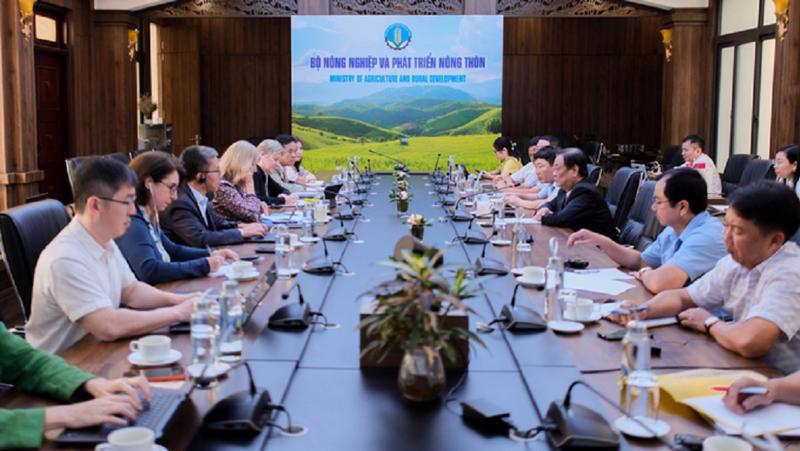Ms. Mariam Sherman, the newly-appointed World Bank (WB) Country Director for Vietnam, Cambodia, and Laos, reiterated her commitment to supporting Vietnam's sustainable agricultural development during a meeting with Minister of Agriculture and Rural Development Le Minh Hoan on September 16.
Ms. Sherman emphasized the WB's interest in purchasing carbon credits from the agricultural sector, offering payment mechanisms based on reduced emissions.
Minister Hoan expressed hope for increased collaboration between Vietnam and the WB, particularly in organizing workshops to enhance Vietnam's capacity for managing international projects. He emphasized the need for the Bank to serve as a liaison between various ministries and sectors, fostering better coordination.
Ms. Sherman acknowledged the ministry's proposals and agreed to explore effective mechanisms for working with the Vietnamese government and international organizations.
Minister Hoan highlighted the importance of addressing the clear economic impacts of climate change in vulnerable regions, such as the Northern mountainous areas, the Central Coast, and the Mekong Delta. He proposed formalizing cooperation between Vietnam and the WB to foster future projects.
As an example of successful collaboration, Minister Hoan cited the Integrated Climate Resilience and Sustainable Livelihoods Project (WB9). This eight-year project has directly benefited over 1.8 million farmers in the Mekong Delta, supporting their transition to more resilient livelihoods. The project has improved farming practices across over 200,000 hectares, helping farmers adopt climate-adaptive agricultural models.
Minister Hoan also called for the WB's support in building large-scale reservoirs, safe water supply projects, and inter-regional water supply systems to address drought, water scarcity, and salinization in impoverished areas.
The Vietnam Sustainable Agriculture Transformation Project (VnSAT) is another successful example of the WB's support for sustainable farming methods and strengthening the rice and coffee value chains. This project has laid a strong foundation for the WB's continued support of the ministry's ambitious initiative to cultivate 1 million hectares of high-quality, low-emission rice (1MH), according to the minister.
The WB has recently proposed a payment-for-results (PforR) mechanism for the 1MH project, which the ministry is currently discussing with other ministries and sectors. The minister affirmed that PforR is a feasible mechanism and that the 12 provinces involved in the project will be given favorable conditions to access capital sources.









 Google translate
Google translate